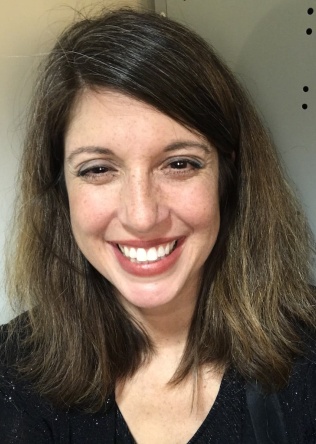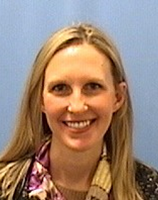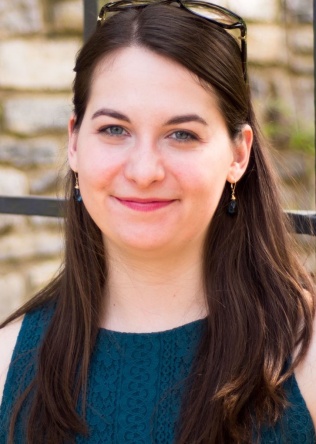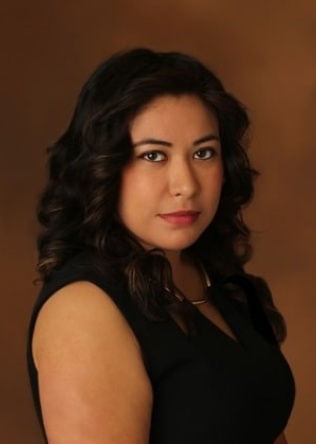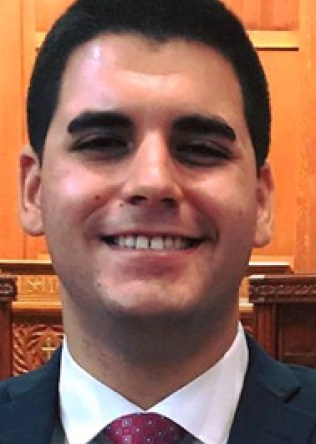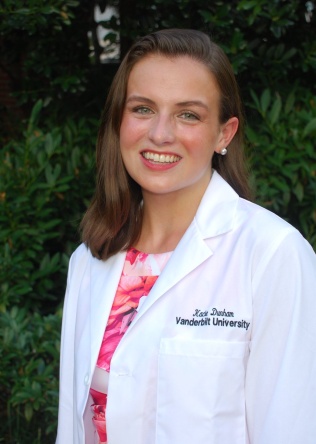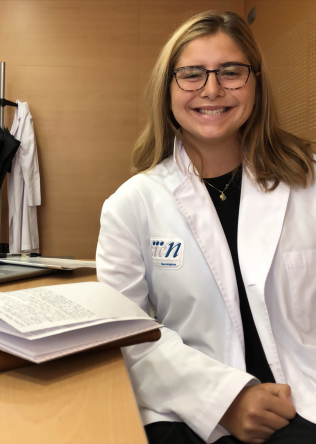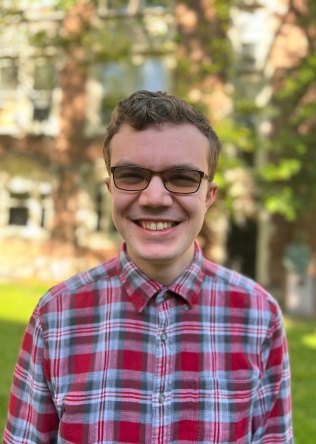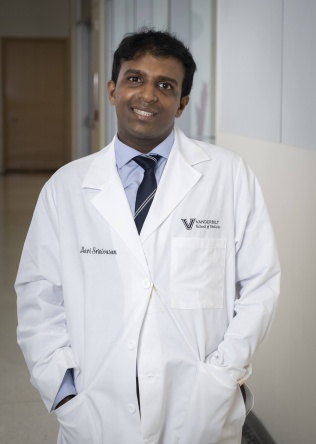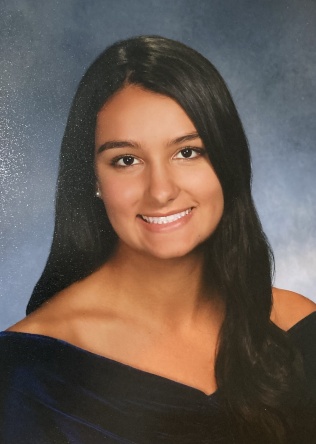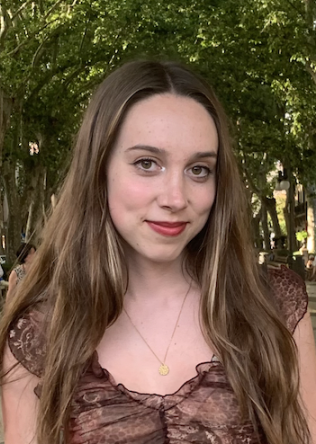-
My graduate training was in neuroscience at Emory University. My work was centered on sensory neuroscience applied to human and nonhuman primates, with an emphasis on tactile perception and functional imaging. Having developed an interest in the neuroscience of autism, I pursued postdoctoral studies at the Neurodevelopmental Disorders Research Center at the University of North Carolina. There I focused dually on somatosensory processing in individuals with autism, and diffusion tensor imaging in young children with autism and other developmental disabilities.
In 2007, I joined the Psychiatric Neuroimaging Program in Vanderbilt’s Department of Psychiatry. I hold a secondary appointment in the Department of Psychology and Human Development, and am affiliated with the Vanderbilt Kennedy Center, Vanderbilt Brain Institute, Center for Integrative and Cognitive Neuroscience, and Vanderbilt Vision Research Center. My lab focuses on the neural basis of sensory and repetitive behaviors in individuals with autism spectrum disorders. -
Brianna received her Ph.D. in Clinical Psychology from Fordham University and then went on to complete her clinical internship and postdoctoral fellowship at the Yale Child Study Center specializing in the diagnostic evaluation, psychological assessment, and providing empirical interventions for children and adults with autism spectrum disorder. Following her postdoctoral fellowship, Brianna joined the faculty at the Yale Child Study Center. She was a clinical psychologist on a multi-disciplinary team in the Developmental Disabilities Clinic and as a clinician supporting various research studies investigating the neural markers of social processing in individuals with autism spectrum disorder across the lifespan, in addition to a multi-site study investigating potential biomarkers for autism spectrum disorder. Her clinical interests additionally include psychological assessment, and school advocacy for children with mental health challenges, behavioral challenges, and/or developmental disabilities.
-
Alisa Zoltowski is a postdoctoral fellow working in the Laboratory of Affective Sensory Research. She received her B.S. in Biopsychology, Cognition, and Neuroscience (BCN) from the University of Michigan and her Ph.D. in Neuroscience from Vanderbilt University, advised by Dr. Cascio. Between her undergraduate and graduate studies, she worked as a research assistant at the Children’s Hospital of Philadelphia’s Center for Autism Research on a variety of projects to better understand and support autistic individuals. In her graduate studies, she used neuroimaging and psychophysics approaches to study sensory processing in autism, with a focus on sensory information about bodily state (interoception). Her long-term research interests include studying how different patterns of sensory processing relate to physical and mental health in autistic individuals.
During her postdoctoral fellowship, she is working on two key extensions to her graduate work: i) the study of sensory brain region development in infants and ii) adapting sensory paradigms to expand inclusion of individuals with intellectual disabilities in this area of research. Ultimately, she hopes that her research will have translational potential to better support individuals who experience sensory processing difficulties.
-
Jennifer is a recent Ph.D. graduate who is leveraging her dissertation work to broaden our understanding of sensory and motor control of facial expression production. Her dissertation work focused on characterizing empathy differences in autism using implicit and explicit methods at the level of brain and behavior. Dr. Quinde Zlibut has developed expertise in manual and automated facial coding of human expression and is now investigating to what degree might facial sensorimotor differences in autism contribute to differences in spontaneous facial expression.
-
Zack is a MD/PhD student at Vanderbilt. He received his B.S. in Psychology from Yale University, where he was heavily involved in autism research at the Yale Child Study Center. Zack is interested in the phenomenology of sensory abnormalities in autism and other neuropsychiatric disorders, particularly in adolescence and adulthood. Ultimately, he hopes to combine a number of behavioral, questionnaire, and neuroimaging methods to gain a richer understanding of individual differences in sensory function across traditional disorder categories.
-
Kacie is a Ph.D. student in the Vanderbilt Brain Institute's Neuroscience Graduate Program. She received a B.A. in Neuroscience with a minor in Music from Vanderbilt University. Her research focuses on the developmental trajectory of sensory processing in autism with an emphasis on how the development of sensory processing may relate to autism symptomatology. She hopes her research on this trajectory will have translational potential to benefit diagnosis, treatment, and support for individuals with autism.
-
Caitlin graduated from the University of Pittsburgh in 2021 with a BPhil in Psychology. During her time at Pitt, she worked as a research assistant in the Kids' Thinking Lab for 3 years, where she investigated how young children differentially learn the foundations of math in their home environment. After graduation, she was interested in gaining more research experience and wanted to expand her research area to atypically developing populations. She is especially fascinated by the complexity of autism, since her older brother is on the spectrum. She is excited to be a part of research that will broaden our understanding of ASD symptomatology and potentially help improve the reliability of early identification measures.
-
Kimberly (Kimmy) Bress is an MD-PhD student in the Vanderbilt Medical Scientist Training Program. She received her B.A. in Neuroscience and Mental Health Studies from the University of Tennessee, after which she worked as a research assistant for the Queen Sofia Foundation of Spain and the National Institute of Child Health and Human Development. She is interested in the application of neuroimaging methods to study the relationship between sensorimotor integration and compulsive behaviors in autism and other neuropsychiatric disorders.
-
My name is Will Quackenbush, and I am a second-year Ph.D. student in the Neuroscience Graduate Program. I received my B.S. in Neuroscience with a Cellular and Developmental concentration and Minor in Violin Performance from Michigan State University. My many friendships across the autism spectrum have inspired me to pursue research and advocacy across the neurodiversity community. Particularly, I am interested in understanding the differences in unisensory and multisensory integration in autism, and how these differences map on to perception of simple and complex common objects. I am especially interested in elucidating the neural and physiological correlates of more sensory-driven (local) and context-dependent, holistic, (global) processing modes. Overall, my research aims to isolate (neuro)physiological factors influencing flexibility between global and local perception states, highlighting potential external factors (i.e., stimming). Outside of the lab, I am an avid fan of listening, playing, and dancing to music. You can find me enjoying a concert at the local symphony, playing the violin as a part of the Vanderbilt Commodore Orchestra, or dancing in the Vandy Ballroom club.
-
Hari Srinivasan is a PhD student in the Vanderbilt Brain Institute's Neuroscience Graduate Program. He is PD Soros Fellow, a NISE (Neurodiversity Inspired Science and Engineering) Fellow at the Frist Center for Autism and Innovation at Vanderbilt and a Public Voices Fellow at the Op-Ed Project.
His graduate school research will focus on sensory processing in autism, specifically the peri-personal space, and how it relates to sensory sensitivities seen in autism. As an autistic with considerable sensory processing challenges, he hopes his research will not just add to knowledge, but also contribute to translatable solutions such as development of technology that can help in sensory retraining so that autistics are better able to navigate their body and movements in their sensory environment.
Hari completed his undergraduate at UC Berkeley in Psychology (minor Disability Studies). As a Berkeley Haas Scholar, he conducted independent funded research into the emotions of awe and empathy in autism under the guidance of Prof Dacher Keltner
Hari is also active in the autism advocacy space and on the boards / advisory boards / scientific advisory of six disability organizations (ASAN, DREDF, Duke University’s ACE, The Brain Foundation, Autism Europe, and INSAR). He was also selected to be on NIMH’s Interagency Autism Coordinating Committee which helps advise federal policy on autism research priorities. Hari also writes extensively on issues related to autism and has been published in various forums including articles in Time, Newsweek, Fortune and Psychology Today.
-
Eshani Arumalla is an undergraduate student at Vanderbilt University majoring in Neuroscience and minoring in Human and Organizational Development. Eshani became interested in learning more about Autism following her brother’s diagnosis. She has initiated numerous service and technical projects and written a meta-analysis analyzing the role of Autistic children on the Emotional Intelligence of their Parents. Eshani hopes to attend medical school in the future and continue working toward improving the lives of those on the spectrum.
-
Grace is an undergraduate student majoring in Neuroscience and Medicine, Health, and Society. She developed a specific interest in autism spectrum disorder upon starting her undergraduate career and learning about perceptual differences in autism. Grace plans to apply for Medical School after completing her undergraduate degree, in hopes of working in pediatric medicine.
-
I am a junior majoring in Psychology and minoring in Cinema and Media Arts. Over the course of several years of working with individuals with disabilities, I have developed a particular interest in the neurological basis of autism. I am currently investigating the morphology of the fusiform face area in infants with varying risks of autism and will soon start my undergraduate thesis. After graduating, I hope to earn a doctorate in clinical psychology and work to increase the accessibility of comprehensive mental health services to people with disabilities.
